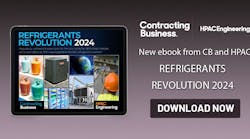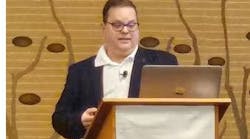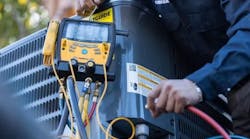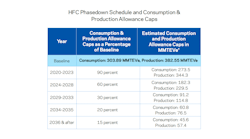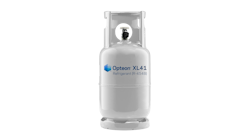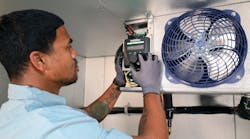The U.S. House and Senate were expected to meet after both branches return from Thanksgiving holiday to strike a final compromise over their competing energy bills. HR 6, the Renewable Fuels, Consumer Protection, and Energy Efficiency Act of 2007, was passed by the Senate during the summer. The House version, which also passed in August, is HR 3221, the Renewable Energy and Energy Conservation Tax Act of 2007.
“If the House and Senate can pass identical bills, they wouldn’t have to take them into an official conference,” says Karen Wayland, legislative director of the Natural Resources Defense Council. “They’re negotiating the tougher parts of the two bills. They want to have the bill on the house floor by December 4 or 5, and vote in the Senate by second week in December.”
A spokesperson at the U.S. Congress bill status office adds that ultimate timeframe for passage will be at the discretion of the Democratic leadership. Both bills contain legislative language that etablishes regional standards, redefines the definition of “energy conservation standard,” weakens federal pre-emption through a sunset provision, and expands building codes by allowing standards to go beyond the national minimum efficiency.
Air Conditioning Refrigeration Institute (ARI) says it strongly opposes regional standards that undermine the basic principles of the National Appliance Energy Conservation Act of 1987 (NAECA) and the Energy Policy Act of 1992 (EPACT).
ARI has lobbied and negotiated with key stakeholders in an effort to advance the interests of the HVACR industry.
• Regional Standards: ARI was successful in removing provisions in the final Senate language that would have set regional standards for commercial products.
• Stand-By Power Consumption: Rep. Tammy Baldwin (D-WI) added an amendment that requires consumption of stand-by energy to be accounted for in test procedures, and thus reflected in the overall energy usage of a product. ARI was successful in removing air conditioners and heat pumps from these amendments.
• ASHRAE Timeline: Reduced effective date of future standards for residential HVAC from current five years to three years, and circumvented ASHRAE 90.1 process for future rulemakings on commercial HVAC products. ARI is currently working with House and Senate staff to restore the five years for HVAC equipment and restoring the ASHRAE 90.1 process for commercial HVAC products.
• Single package vertical unit (SPVU) Standard: Due to an error with the Energy Policy Act of 2005, the Department of Energy was unable to issue standards for SPVUs (consistent with 90.1) and three-phase < kBtu/h USE (13 SEER) equipment. Language is included to restore the EPACT 2005 three-phase equipment and SPVU rulemaking authority. Further, the Senate has agreed to recede to the House language in order to establish the standard within six months.
RSES Hosts HVACR/Plumbing Workshop
The HVACR & Plumbing Instructor Workshop will be held March 5-7, 2008 at the National Conference Center in Lansdowne, VA.
The event is to be hosted by the Refrigeration Service Engineers Society (RSES), and will feature heating, ventilation, air conditioning, refrigeration, and plumbing-specific technical sessions under the theme, “What’s New and Great in ’08.” Topics include water heater trends and product solutions; new technology in the copper industry; PEX plumbing systems, installation and operation; strategies for engaging the Generation X and millennial student; troubleshooting an oil fired appliance; teaching water heater troubleshooting; gas pressure regulators; and new tanking and piping options for boilers.
A session entitled, “Developing a Performance Based HVACR Curriculum Using World-Wide Instructional Development System” will be presented by David Sullivan of Johnson Controls UPG. Visit www.instructorworkshop.org for additional information.
